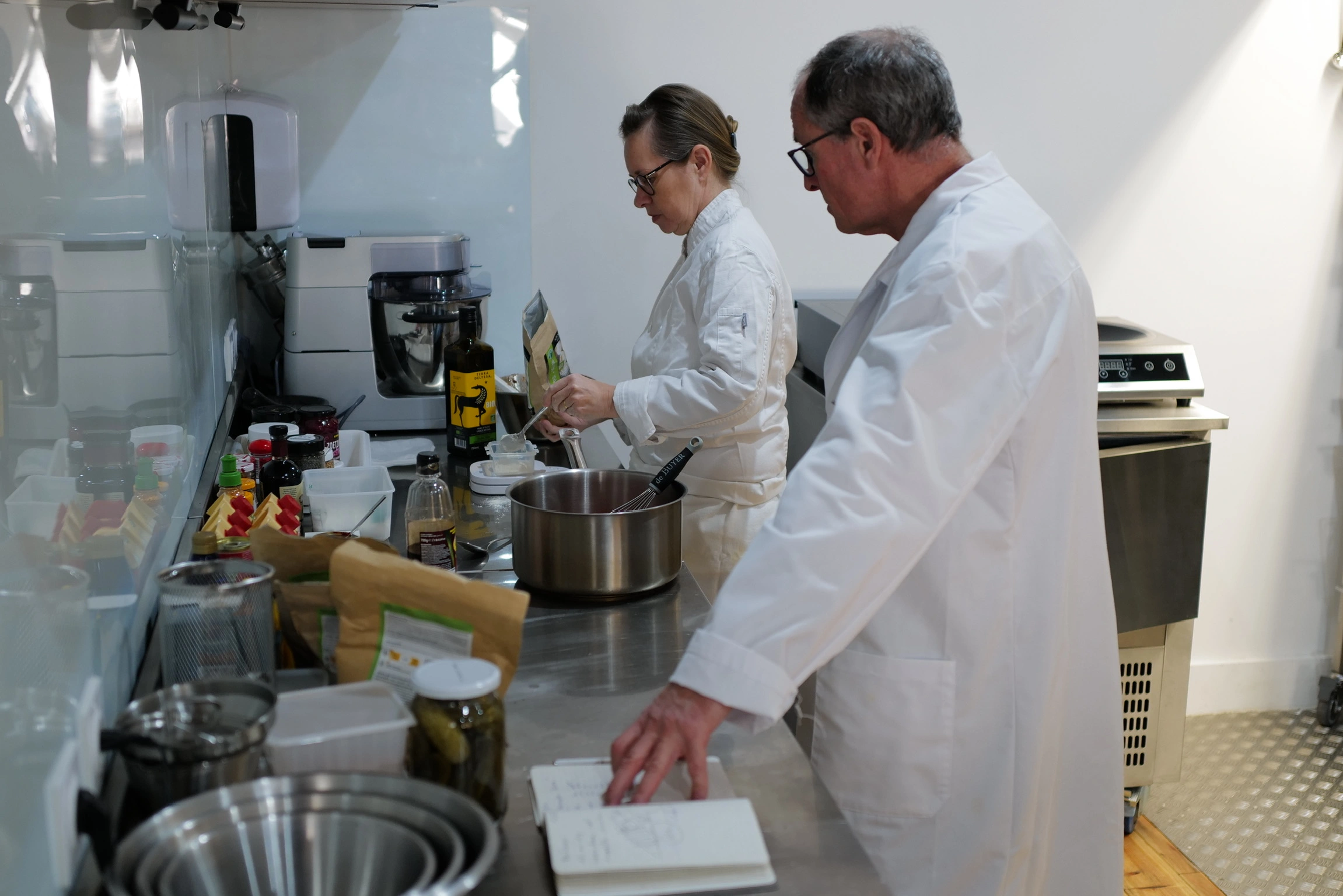How AI is Revolutionizing the Development of New Food Products
Artificial Intelligence (AI) is profoundly transforming innovation in the food industry. With its immense capacity to analyze data from social media, blogs, recipes, and other sources, it unlocks unprecedented potential for creativity and efficiency within R&D teams.

Rich Data & New Product Ideas
AI draws on the wealth of online food data (social networks, blogs, menus, etc.) to generate unique product ideas. Example: a vegan aioli sauce made from almond oil.
It can also uncover original concepts such as the “Almond Champurrado Mix” imagined by Rachel Zemser, using TasteGPT via Tastewise IO.
Leading Brands Pioneering AI
Unilever leverages AI to test thousands of formulations “in silico” within seconds, accelerating regional product launches (e.g., Hellmann’s plant-based mayo, Knorr Zero Salt cubes).
Coca-Cola used AI to create a new flavor (Y3000 Zero Sugar) and even digitally redesign its iconic holiday polar bear.
PepsiCo detected a surge of consumer interest in immunity by analyzing millions of posts, which inspired an “immunity” version of Propel.
Startups & Innovative Ingredients
NotCo partnered with Kraft Heinz via its AI engine Giuseppe to recreate plant-based products that mimic animal-based versions, achieving commercial success (NotMac&Cheese, NotCheese Slices, etc.).
Brightseed uses its AI Forager to identify rare bioactive compounds — such as fibers derived from hemp seed waste — offering a major scientific shortcut for R&D.
Augmented Capacity & Time Savings
AI enables developers to explore an exponential number of product ideas, revisit older formulations, or quickly identify new niches — a major efficiency boost that frees up valuable time in R&D.
Expert Recommendations Before Adoption
To get the most out of AI, several best practices are essential:
- Get started without delay: identify concrete use cases, with leadership support, to kick off AI integration.
- Ensure data quality: avoid AI “hallucinations” caused by uncleaned data or language that isn’t tailored to food tech.
- Protect proprietary data: safeguarding sensitive information must remain a priority.
- Invest in skills: combining scientific and digital expertise attracts talent and is crucial for success.
AI is not just a technological gadget: it has become a disruptive force in food product development. It reshapes the creative process, drastically reduces R&D cycles, and rekindles innovation. However, successful adoption requires a well-thought-out strategy, reliable data, strong technical expertise, and a human-centered vision at the core of the process.
Read the full research article on the IFT website.


